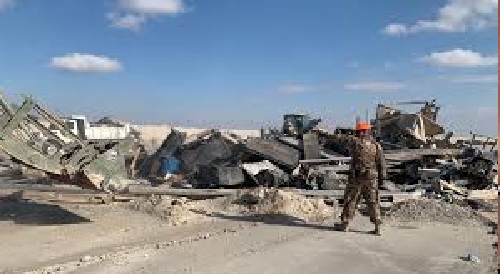As tensions escalate between Iran and the United States, Ghanaian nationals living in Qatar are calling for urgent government intervention following reports of missile strikes targeting U.S. military bases in the region.
One Ghanaian migrant worker, Stephen Owura Kissi, who lives in Argentina Town, a residential area in Qatar, recounted his terrifying experience during an interview on TV3’s Ghana Tonight programme on June 23.
He described how he witnessed multiple missiles streak across the night sky and was immediately instructed, along with others in the area, to remain indoors until further notice.
“We saw the missiles flying — about ten of them,” Stephen said. “Since then, we’ve been asked to stay indoors. We are not allowed to go outside, and it’s been a very sad and scary experience for us.”
The missile strikes, which targeted U.S. military installations in Qatar, have intensified fears among foreign nationals, particularly migrant workers from Africa and Asia. While the U.S. reportedly intercepted the missiles, the impact on nearby communities has been profound.
Kissi, who is among an estimated 1,000 Ghanaians living in Argentina Town, said the anxiety among residents is palpable. The area, home to a diverse group of workers from countries including Nepal, Pakistan, and India, is located not far from the targeted base.
“We are immigrants. We came here to work and support our families back home,” he said. “But this conflict is affecting us too. Our families in Ghana are worried, and we don’t know what will happen next.”
He revealed that despite the gravity of the situation, no official communication has been received from the Ghanaian Embassy in Qatar. He expressed hope that the embassy or Ghana’s Foreign Affairs Ministry would reach out soon with safety measures or contingency plans.
“It’s almost 11 p.m. here and still no word from the embassy. We hope by tomorrow we’ll hear something,” he added. “If we’re stuck indoors, we can’t go out to buy food. We’re pleading with the government to support us — even with basic necessities.”
Kissi said the worsening situation could eventually lead to evacuation if the hostilities continue. “If this escalates, we may be forced to return to Ghana. We just want peace, safety, and support while we remain here.”
He therefore called on both Ghanaian authorities and international organisations to prioritise the safety and welfare of foreign workers caught in conflict zones.

